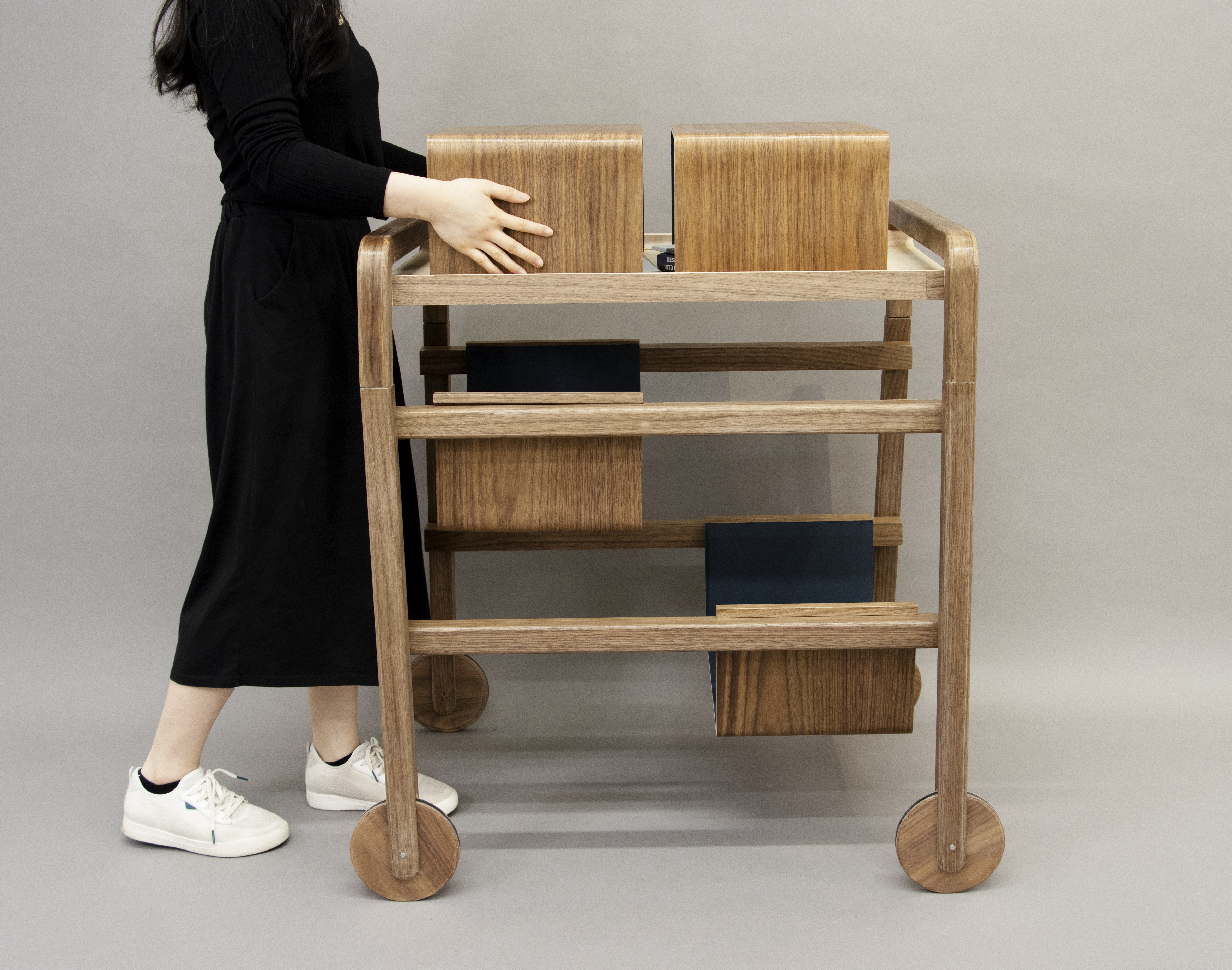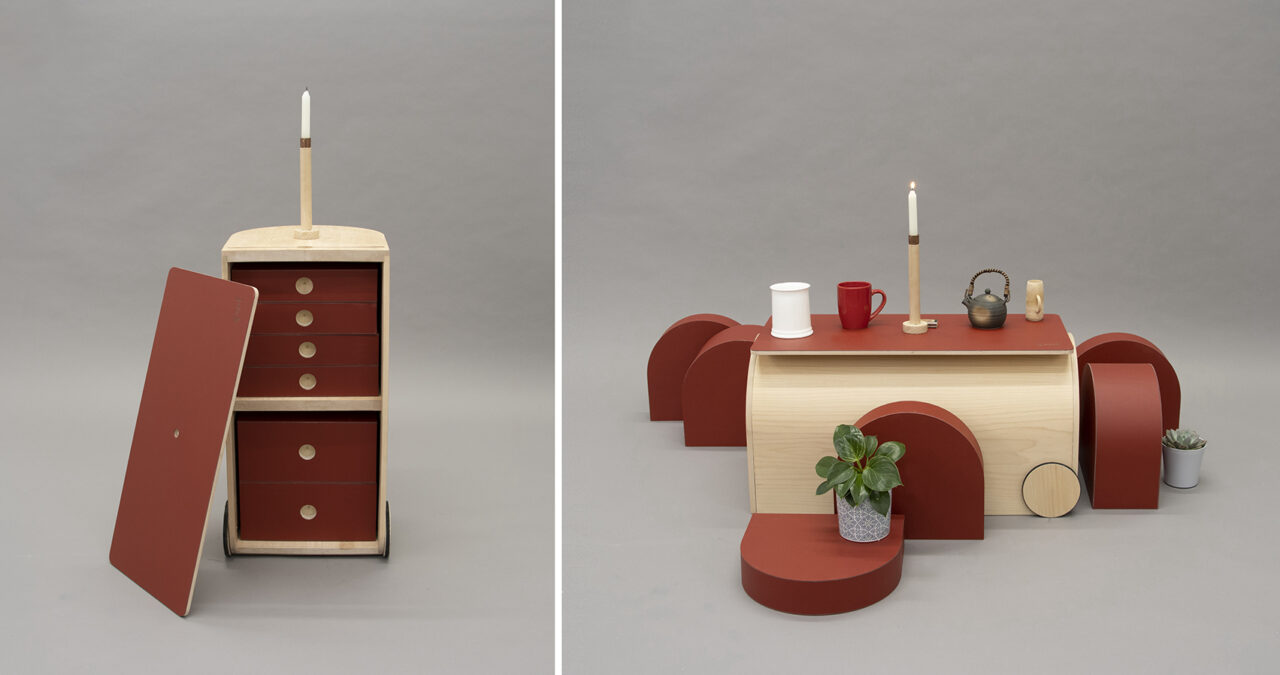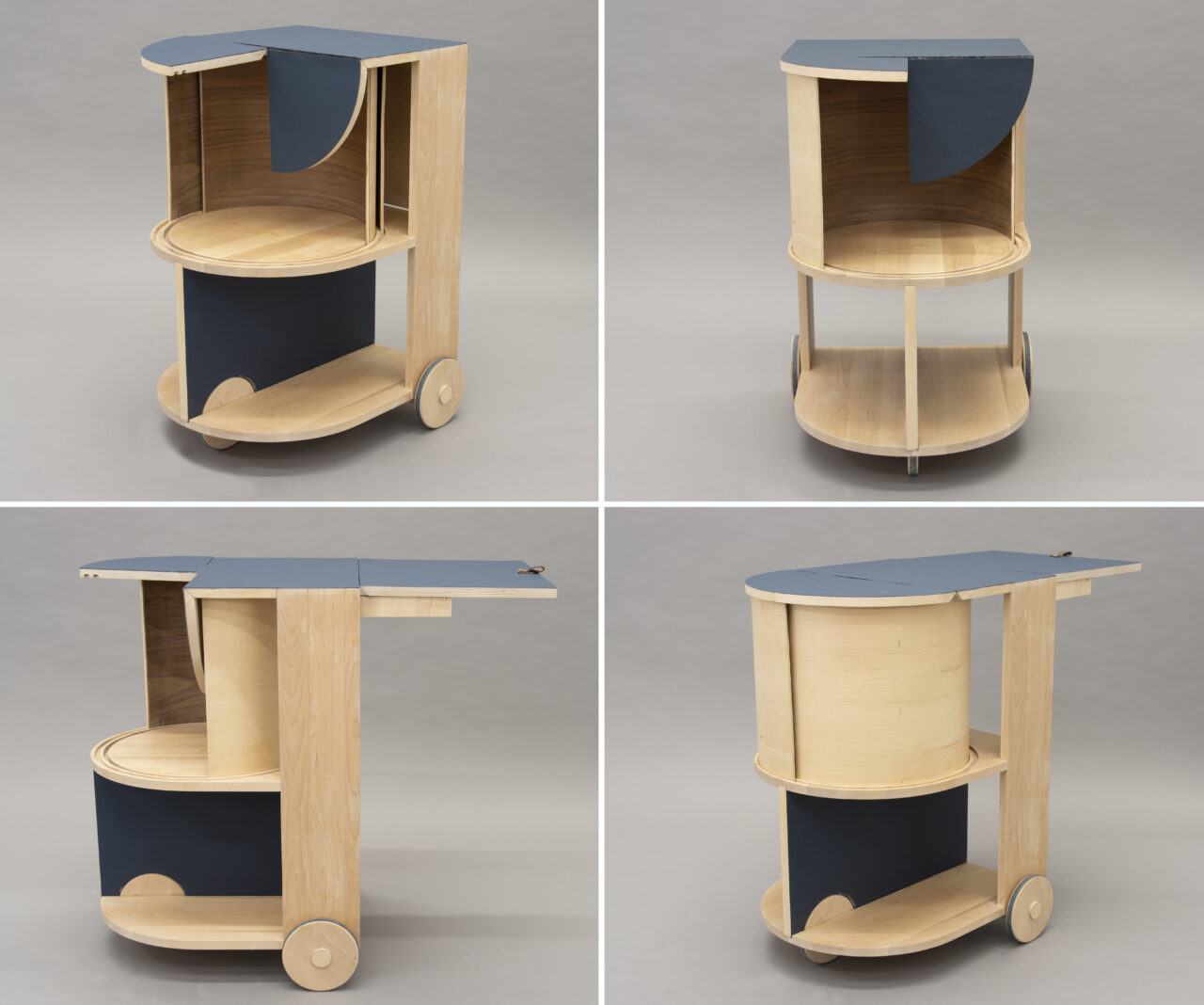Students Create Transformative Design with ‘The Cart Project’

The B-orb cart, designed and developed by Jialin Meng, Suzanna Wu and
Ruth Weng. (Image courtesy Jialin Meng, Suzanna Wu and Ruth Weng)
Posted on
The thoughtful furniture objects designed by students during a 2019 course were recently featured in an industry publication.
A 2019 industrial design project that challenged students to address sustainability and versatility in their work was recently featured in an article from Forbo, producer of one of the key materials used by students in their designs.
Titled The Cart Project, the exercise brought together students from ECU faculty member Christian Blyt’s INDD 300 class with industry partners Forbo and BoConcept — producer and designer of contemporary furniture — to create flexible homewares for compact living spaces.
“In addition, the project aimed to address — and potentially find solutions to — the environmental impact caused by the furniture industry by considering the life cycle of the product in its entirety,” Forbo notes in its article.
Using Forbo’s Furniture Linoleum surfacing material, and with close input from BoConcept designers, students gathered in three-person teams to design and build multipurpose carts meant to serve a range of purposes for their “real” client/user, who were co-designers.
“The overarching goal of the project was to utilize the best qualities of both companies to produce a design that is versatile, resilient, and ecologically responsible,” Forbo’s article notes.

Jack, a cart concept developed by Naomi Boyd, Tuyen Hoang and Chayan Aravena. (Images courtesy Naomi Boyd, Tuyen Hoang and Chayan Aravena)
The Cart Project is one of an ongoing series of classes taught by Christian that bring students into working relationships with leading companies across the fields of design, production and retail. One of Christian’s 2021 industrial design courses saw students produce new furniture items from old-growth lumber saved from the scrapheap by local salvage and carpentry operation, Unbuilders. Another 2021 course gave students a chance to take the homeware design process from start to finish — including working with a local retail store on sales and promotion — under the mentorship of the owners of WALRUS boutique in Vancouver.
According to Christian, an opportunity to work directly with industry can be a seminal experience for students as they establish themselves as professionals in their own right.
“Design school is a time and space where students have the opportunity to experiment, fail, and define their personal practice/agency,” Christian tells me via email. “Collaboration with real-world local and international partners takes the classroom beyond the walls, connecting people, economies and the environment in new ways of looking and solving problems.”

Re-Veil, a cart concept developed by Emily Pan, JingYi Yang and Queena Lyu. (Images courtesy Emily Pan, JingYi Yang and Queena Lyu)
The deeply thoughtful and wide-ranging design solutions created by students in The Cart Project include carts that transform into desks, kitchen tables, coffee tables or side tables, and are expandable, shrinkable, or contain shelves that double as seating. Each of the teams developed their concepts over a 14-week semester, during which they gave several interim presentations to professional designers.
“From these sessions, valuable feedback and suggestions were given that allowed the teams to develop their designs from 2D abstract concepts into a full-scale finished working prototype,” Forbo writes.
Visit Forbo online now to learn more about The Cart Project, including images and concepts from each of the individual student teams.
--
Visit Emily Carr online now to learn more about the Industrial Design program at ECU.